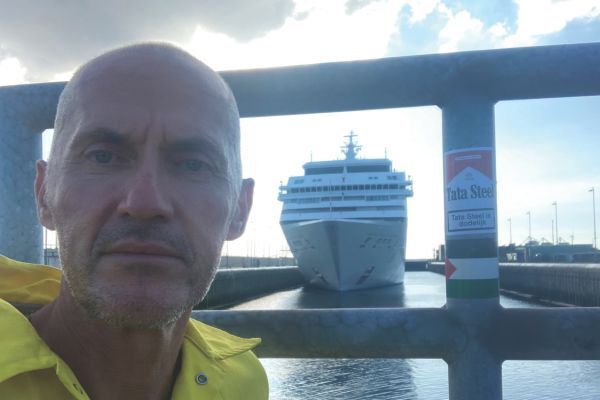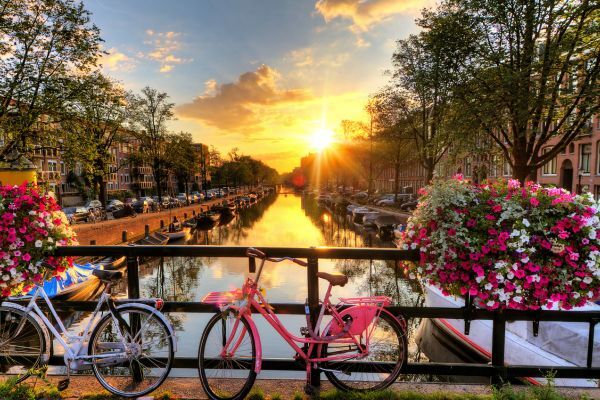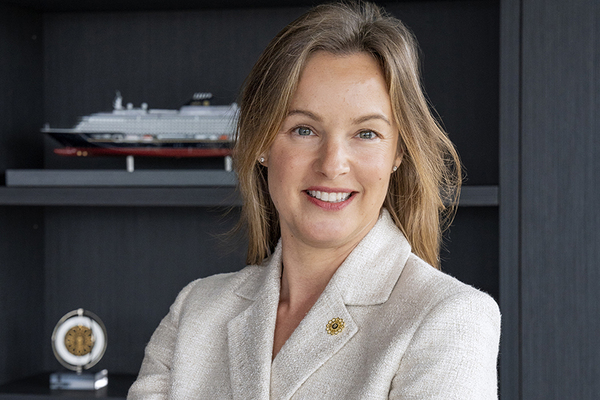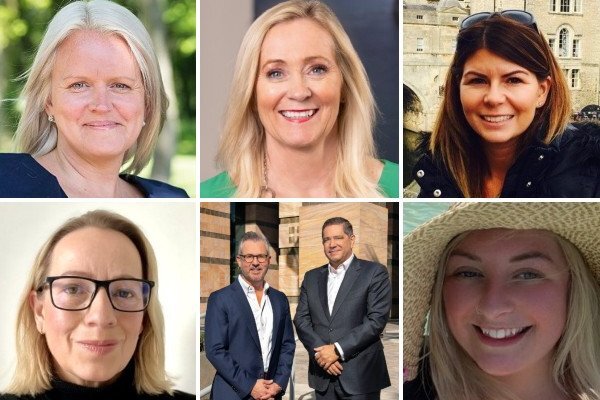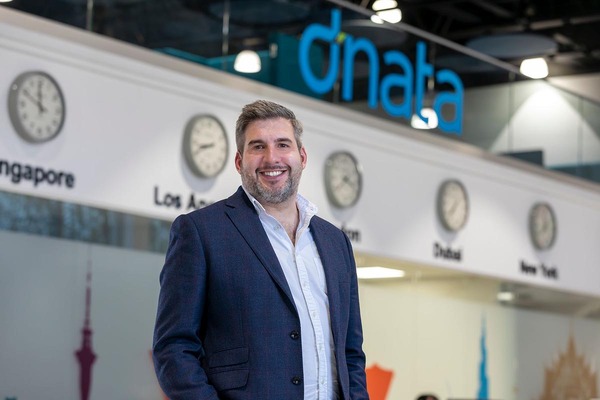Cruise vs Extinction Rebellion: battle lines drawn...
If you’ve had clients visit Amsterdam by ship this summer, their arrival may well have been greeted by climate activists who – from their standpoint – see the cruise sector as a major contributor to the climate ills the world currently faces.
Maarten Frijlink has been at the forefront of four of the five recent Extinction Rebellion (XR) demonstrations at the port of IJmuiden, near Amsterdam, where activists have chained themselves to the locks to block ships coming into central Amsterdam.
As a result, Amsterdam-bound ships have either been badly delayed, have opted to dock in IJmuiden, which is about a 45-minute drive from Amsterdam, or chosen to avoid the city altogether.
On successive August weekends, Ambassador Cruise Line docked its ships – Ambience and Ambition – in IJmuiden and bussed passengers into Amsterdam rather than running the gauntlet.
Frijlink told TTG the group would continue its protests "indefinitely" until ships either stop coming to Amsterdam or the cruise industry "ceases to exist". "I hate to say this, but cruises have to end – period.”
’Sustainable city’
In response to the XR demonstrations, which have disrupted sailings operated by Disney Cruise Line, Virgin Voyages, Royal Caribbean International, Regent Seven Seas Cruises and Ambassador this summer, the mayor of Velsen, where IJmuiden is located, has introduced measures to firm up how authorities respond to the action.
A new protocol sets out zones around the lock gates where demonstrations have been prohibited. When activists enter these zones, the protests are disbanded. It is up to the mayor, the public prosecutor and the police to decide when and how demonstrations are broken up.
So, what does the future hold for Amsterdam as a cruise port? It’s clear the current situation cannot continue if the city is to remain an integral part of the northern European cruise landscape.
In recent years, Amsterdam has announced major changes to how it manages cruise operations to create, in the words of deputy mayor Hester van Buren, “a liveable, clean and sustainable city”.
Starting in 2026, only one ship will be allowed to dock at any time, while from 2027, all cruise vessels visiting the city will have to be shore power-enabled. Longer-term, the city plans to relocate the port in 2035 from its current location in Veemkade.
"By limiting sea cruises, requiring shore power, and aiming for the cruise terminal to move from its current location in 2035, the council is responsibly implementing the council’s proposal to stop sea cruises,” Van Buren said recently.
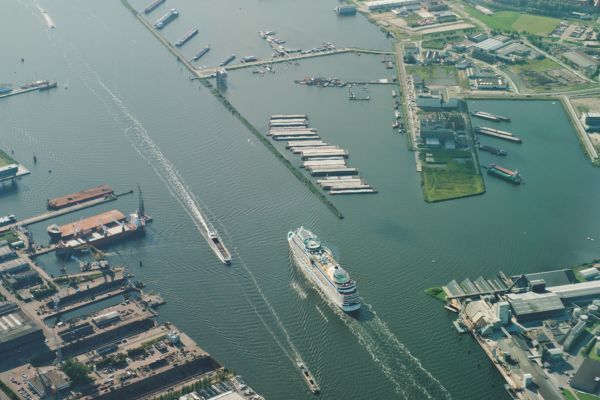
Despite the planned changes, which would ultimately end cruise ships entering the city centre, this still feels short of what Frijlink and XR want. After all, cruise ships will likely still visit Dutch ports outside Amsterdam after 2035.
’Collaborative approach’
Clia UK and Ireland managing director Andy Harmer insisted he would be prepared to meet the climate activists involved to try reach a resolution.
"We’re open to having conversations [with Extinction Rebellion],” Harmer explained. “We strongly believe people can have different views, but we want people to have an understanding of the facts from our side. We’re more transparent as an industry than we ever have been.
"As an industry, we’re doing great things. We’re investing huge amounts in technology such as waste treatment plants, alternative fuels and recycling. The industry is taking great strides to work with ports.”
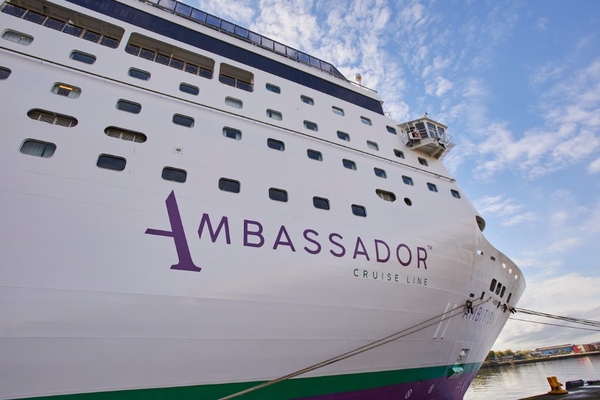
Harmer added: “It’s about having that collaborative approach. We’re working with destinations around the world.”
Frijlink said XR is “open to talking to anybody”. “Conversation is always good to explain what our position is – I spend a lot of my time doing this,” he added. “We irritate people, but we still look each other in the eye and exchange views.
"It’s not about convincing one another. What we’re doing at Extinction Rebellion is polarising – we want a carbon zero solution in 2025. We increase the pressure and stick to our guns.”
Reading-based Travel Counsellor Marie Rowe, one of TTG’s Sustainable Travel Ambassadors, doesn’t sell cruises because she believes they are “environmentally offensive”.
However, she stressed she didn’t agree with the type of protesting XR engages in. “I switch-sell people away from Amsterdam to Haarlem,” she said. “It’s the overtourism situation in general.
"I want my customers to go to places where locals are falling over themselves to look after you, not the other way around. The destinations need to take action."
Tackling overtourism
Amsterdam’s decision-makers have time and again acknowledged that unless action is taken soon, the city will head in the same direction as Barcelona and Venice.
"The rapid growth of tourism is a global trend,” van Buren has said. “The number of visitors is so high it puts pressure on the quality of life in some areas of the city, and the support base among residents is decreasing.”
Rachel Tredwell, owner of Wantage-based Tredwell Travel, spoke to TTG during a four-day Virgin Voyages sailing to Amsterdam last month onboard Resilient Lady. She believes the city’s authorities should consider capping the number of tourists in the city, as well as cutting the number of cruise calls.
However, in the coming years, Tredwell predicts the Amsterdam “situation” will play out much like it has in Venice, where the Italian government has banned ships of more than 25,000 tonnes from entering the lagoon. This has resulted in lines docking their ships in Ravenna – two hours down the coast from Venice.
"I think it might turn into a situation like Venice, where ships dock further away from Amsterdam and passengers travel into the city,” said Tredwell, who added: “I don’t think removing Amsterdam as a port of call will put people off cruising.”
But will it discourage climate activists like XR sufficiently for them to turn their attentions away from the cruise sector? And if so, which other areas of travel might come under the XR microscope instead?
Sign up for weekday travel news and analysis straight to your inbox

Harry Kemble
Supplier Directory
Find contacts for 260+ travel suppliers. Type name, company or destination.
